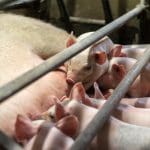Animal agriculture is a widespread industry that plays a significant role in our daily lives. However, it also has a profound impact on the environment, contributing to pollution, deforestation, and climate change. In this post, we will explore the environmental toll of animal agriculture and discuss the need for redefining our dietary choices.

The Impact of Animal Agriculture on the Environment
Animal agriculture is a major contributor to environmental degradation and pollution. The industry’s practices have wide-ranging effects on the environment, including:
- Greenhouse gas emissions: Animal agriculture is responsible for significant greenhouse gas emissions, including methane and nitrous oxide. These gases are far more potent than carbon dioxide in trapping heat in the atmosphere, contributing to climate change.
- Deforestation and habitat loss: Massive amounts of land are cleared for animal agriculture, leading to deforestation and the destruction of vital habitats for countless wildlife species.
- Contamination of soil and water: Animal waste from factory farms contaminates soil and water, causing serious health risks. Runoff from animal agriculture also pollutes rivers, lakes, and groundwater.
The environmental toll of animal agriculture cannot be overlooked. It is crucial to address these issues and find sustainable alternatives to mitigate the negative effects on our planet.
The Connection Between Animal Agriculture and Climate Change
Animal agriculture is a leading cause of greenhouse gas emissions, surpassing even the transportation sector. The methane produced by livestock is 25 times more potent than carbon dioxide in terms of trapping heat in the atmosphere. Deforestation for livestock feed production contributes to climate change by reducing carbon sinks and releasing stored carbon. Reducing meat consumption can significantly reduce carbon emissions and help mitigate climate change.
- Animal agriculture is a leading cause of greenhouse gas emissions
- The methane produced by livestock is 25 times more potent than carbon dioxide
- Deforestation for livestock feed production contributes to climate change
- Reducing meat consumption can significantly reduce carbon emissions

The Devastating Effects of Animal Agriculture on Water Resources
Animal agriculture is a major source of water pollution, with animal waste and runoff contaminating rivers, lakes, and groundwater. The excessive water use for raising livestock contributes to water scarcity in many regions. Livestock farming requires vast amounts of water for irrigation of feed crops and drinking water for animals. Adopting plant-based diets can conserve water resources and reduce water pollution from animal agriculture.
The Destruction of Natural Ecosystems by Animal Agriculture
Animal agriculture is a leading cause of deforestation, destroying vital habitats for countless wildlife species. The expansion of animal agriculture often involves clearing native vegetation, leading to the loss of biodiversity.
Additionally, large-scale livestock farming contributes to soil erosion and degradation, compromising the fertility and productivity of the land. The unsustainable practices associated with animal agriculture pose a threat to the health and resilience of natural ecosystems.
By transitioning to more sustainable farming practices and reducing the demand for animal products, we can help protect natural ecosystems and preserve biodiversity. It is crucial to promote a shift towards more environmentally friendly alternatives to mitigate the destructive impact of animal agriculture.
















































